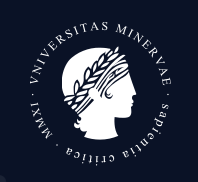A new entrant is poised to make a bid, and it’s worth some study.
The Minerva Project was initiated by Ben Nelson, the man behind Snapfish (a photo website). His vision is of a university that offers an “uniquely rigorous and challenging university education." (At a price, we might add, that is a relative bargain--reportedly, the target cost is something like half of what the Ivys charge).
The idea is that classes will be delivered via video, and students will then engage in discussion and debate. Importantly, and in pointed contrast to MOOCs, class size will be limited to 25.

The curriculum will not rest on traditional academic subject divisions (some English, some math, some science) but rather on four essential skills: critical thinking, use of data, understanding complex systems, and effective communication. If that sounds squishy, be forewarned that the courses are planned to be demanding, and students who do not perform well will (gasp) fail the course.
Minerva is trying something quite different than other online higher ed options. Online universities exist, but their appeal has been their low price and low academic standards and, to a lesser extent, flexibility in scheduling. They claim to offer a degree that is comparable to a traditional degree, though few believe that they do.
It’s still not completely obvious how MOOCs (as implemented in Coursera and edX) will evolve, but no one thinks the long-term purpose is to give away courses. The interpretation I hear most often is that they will not seek replace standard degrees, but will offer more of an a la carte education; you take, say, 12 engineering courses (earning certificates showing that you’ve done the work) in the hopes that the reputation of the participating institutions will be enough to persuade an employer that passing the courses means you’ve got the chops for a job—and you’ve paid just a tiny fraction of what a traditional engineering degree would have cost.
Minerva seeks a third way. It promises an elite education, comparable to the most selective schools in the US. They are gambling that this option will appeal to students who were qualified to attend a big-name university, but didn’t get in.
It’s a darn good bet that there are plenty of frustrated students who thought they had the record for admission to Big-Name U; these places reject 75% or more of their applicants.
It’s no accident that the Minerva website notes that admissions decisions will disregard “lineage, state or country of origin, athletic prowess, or ability to donate.” In other words, "if you fear that you will be jostled by affirmative action targets, athletic admissions, legacies, etc., apply here."

Naturally, that will depend on the quality of the courses and the curriculum. Minerva has not hired any faculty yet, but Nelson has some high profile members on his board (Larry Summers, Bob Kerrey) and they just hired Steve Kosslyn as the founding Dean of the College. Kosslyn has been a Dean at Harvard and was most recently Director of the Center for Advanced Study of Behavioral Sciences at Stanford. To lure someone that capable to devote all of his energies to Minerva bodes well for the project.
We may be seeing the first of new wave of elite colleges. In the colonial era and following, this country saw elite colleges founded to train clergy (Harvard, Yale, Princeton). Better than a century later there was another spate, as wealthy industrialists founded new schools or heavily endowed existing ones (U of Chicago, Stanford, Vanderbilt).
There may well be room for a new model of elite higher education, and Minerva, as the first one out of the gate, holds a significant advantage.
Note: Thanks to Chris Chabris, whose Facebook post made me aware of Minerva.
 RSS Feed
RSS Feed